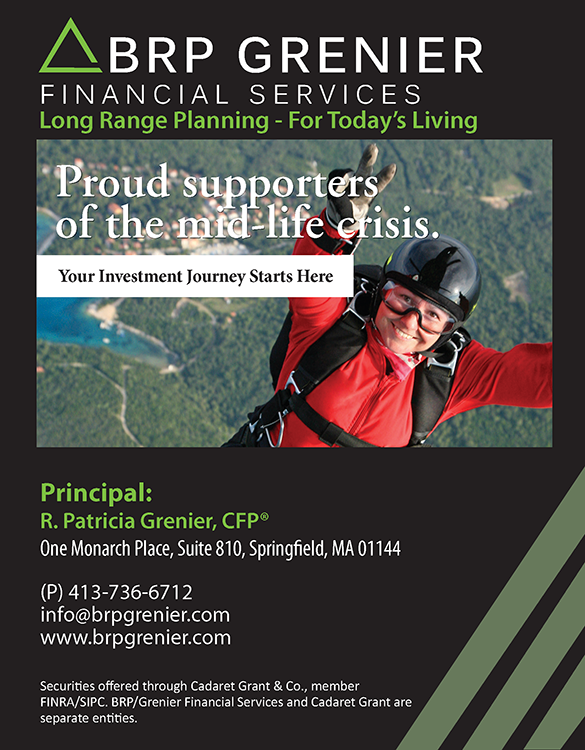And Why Investors Should Consider Re-evaluating This Strategy
By Jeff Liguori
Humans are historically bad at long-term thinking. In the world of finance, that behavior has dramatically worsened over the past 50 years.
Today, the average investor holds an individual stock for less than six months; in the late 1990s, that period was approximately two years. Go back to the 1950s, and investors were holding individual stock for nearly eight years on average.
What has caused such a drastic shift in investor behavior? First, access to markets has never been greater, which creates ample amounts of liquidity for trading. Second, ever-growing reams of information are disseminated at lightning speed, preying on our psyches. Finally, the cost to trade shares of a stock is negligible — in many cases, zero. Each of these trends is quite beneficial to the average investor. However, the combination of these factors promotes behavior that does not support a long-term view of investing.
For the sake of analysis, let’s look at the performance of Target Corp. (symbol: TGT). From July 1, 2013 through Nov. 30, 2021, the total return of Target’s stock (price appreciation and dividends) was 350%. During that same timeframe, the S&P 500 had a total return of 230%. However, shares of Target largely underperformed the broader market in the five years following July 1, 2013, returning 29% vs. 86% for the S&P 500.
Jeff Liguori
“Ever-growing reams of information are disseminated at lightning speed, preying on our psyches.”
There was no lack of bad news in that five-year period, including a change in leadership with a new CEO and a failed plan to expand into Canada that cost the company more than $5 billion. But a patient investor with a long-term view, who believes in owning solid businesses, has been handsomely rewarded by staying with Target.
A recent article in the Wall Street Journal highlighted a little-known mutual fund manager, Wilmot Kidd, who has had exceptional investment performance.
“Over the past 20 years,” it notes, “Mr. Kidd’s Central Securities Corp. … has outperformed Warren Buffett’s Berkshire Hathaway Inc. Over the past 25, 30, 40, and even nearly 50 years under Mr. Kidd, Central Securities has resoundingly beaten the S&P 500. The keys to his success? Patience, concentration, and courage.
“If you had invested $10,000 in Central Securities at the end of March 1974, when Mr. Kidd officially took over,” the article continues, “you would have had nearly $6.4 million by the end of this October, according to the Center for Research in Security Prices. The same amount put into the stocks in the S&P 500 would have grown to $1.9 million.”
Analysis on Kidd’s fund suggests an average holding period north of 10 years. But some of the companies in which Central Securities is invested have been part of the fund for more than 30 years. And during Kidd’s tenure, the fund has underperformed the S&P 500 several times. But having the courage of his convictions, and staying invested through market cycles, has served his clients very well, despite periods of underperformance.
Investing today is about constant measurement. Companies produce quarterly earnings reports, compelling Wall Street analysts to change projections and adjust ratings, which forces investors to rethink their investment ideas. Add in exogenous events to amplify anxieties, and it is no surprise that the investing public has become so shortsighted. No, I don’t worry about the potential ramifications of Russia invading Ukraine on my stock portfolio (an actual assertion from a client!).
As a kid, I remember my grandfather diligently keeping track of the few stocks he owned, writing the end-of-month prices in a journal. He didn’t have the luxury of technology; his analysis was straightforward and pragmatic. He invested in companies with which he was familiar. He had no formal degree, having to forgo college to support his family during the Depression. The son of immigrants, he owned and operated a small grocery store whose customers were almost entirely working-class or even working poor.
One of his suppliers was a company called Corn Products Inc. The company still exists, now called Ingredion (symbol: INGR). For him, investing was about owning a piece of this company that he had a personal connection to, in the hopes of growing a nest egg. Whenever there was ‘extra’ money from his earnings, he would add to his positions. My grandfather retired in 1982 having never earned more than $30,000 in any given year. The value of his portfolio exceeded $600,000 prior to his death in 2011.
He didn’t know he would live for nearly a century, passing at age 97, but he sure invested like it. u
Jeff Liguori is the co-founder and chief Investment officer of Napatree Capital, an investment boutique with offices in Longmeadow as well as Providence and Westerly, R.I.; (401) 437-4730.






 Jean Deliso, CFP said she started calling her investment clients several days ago to gauge how they’re feeling amid some growing turbulence for the economy — and on Wall Street.
Jean Deliso, CFP said she started calling her investment clients several days ago to gauge how they’re feeling amid some growing turbulence for the economy — and on Wall Street.


